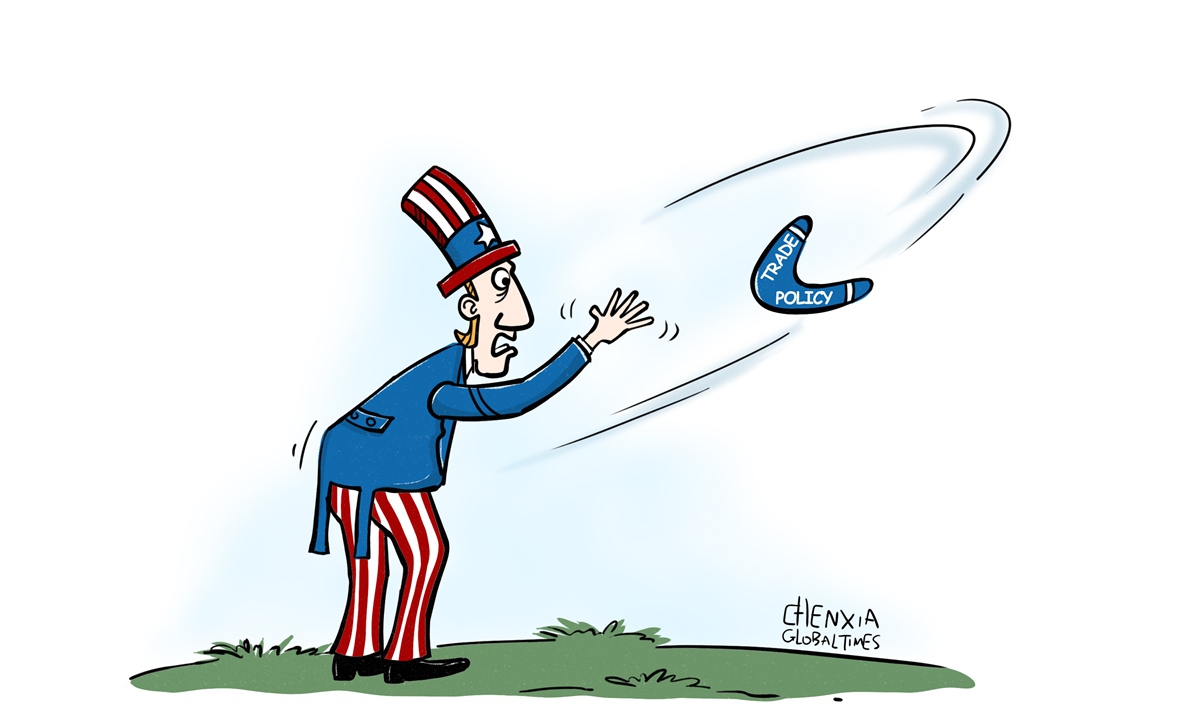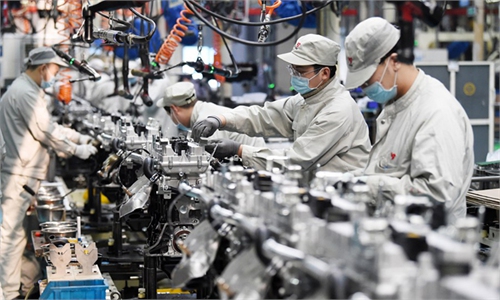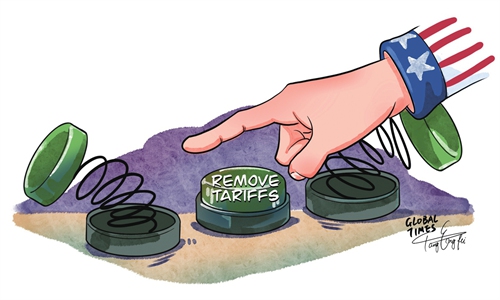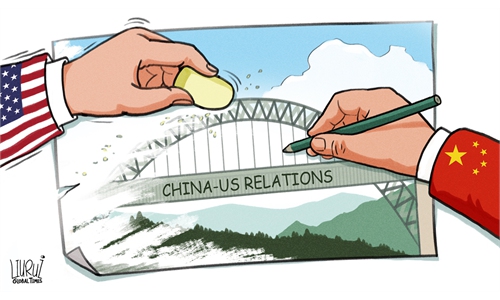
Illustration: Chen Xia/Global Times
As the Biden administration continues to push for supply chain restructuring, some US media outlets have detected more signs of "decoupling" from China in bilateral trade data. That shouldn't be seen as a proud economic achievement by politicians, but a regrettable failure.As a result of accelerated efforts by American companies to reduce dependence on Chinese suppliers, data from the US Census Bureau showed that US imports from China in the first five months of this year decreased 24 percent from the same period last year, and Mexico became the US' top trading partner, The Washington Post reported on Sunday.
While some US politicians and media outlets may take the trade trend as a desirable result of their efforts to reduce supply chain dependency on China, it actually points to the pain the US "decoupling" push has brought to bilateral trade and economic cooperation.
Forcibly reversing the trend of China-US trade is not an economic achievement for which politicians should take credit, but something they should be ashamed of, because the two countries' business communities are suffering and the two economies are on track to face more challenges.
The essence of China-US economic and trade cooperation is mutual benefit, and there is no winner in a trade war or "decoupling" push. The drop in US imports from China is largely due to the impact of the additional tariffs and Section 301 tariffs the US imposed in the trade war, which have driven up costs and put growing pressure on producers and suppliers on both sides. In an open letter issued recently, Americans for Free Trade, which is comprised of about 170 trade groups, urged US Trade Representative Katherine Tai to address the forthcoming expiration of the Section 301 tariff exclusions.
"In the last five years, American importers, including members of our coalition, have paid more than $183 billion in Section 301 tariffs on products imported from China," it wrote. "The product exclusions granted to date have provided limited relief for some companies over this time."
On the Chinese side, exporters have also taken the hit of the high tariffs, and this lose-lose situation may be just the beginning. If the US government sticks to the high tariffs and trade barriers, then it will be hard to tell how long US manufacturers and importers can sustain the high costs, and this will certainly push US inflation up further.
To avoid high tariffs and geopolitical risks, some American companies have chosen to transfer their supply and industrial chains to countries like Mexico, while some Chinese companies are also moving to third countries from where they re-export to the US. Both choices are jacking up US consumers' costs. This is because no other country can offer as many products with price advantages as China. The additional costs of supply chain transfers will eventually be shouldered by American consumers, who will see their cost of living rise without the return of jobs to the US.
It is exactly because of the persistently high US inflation that Federal Reserve Governor Michelle Bowman said on Saturday that the Fed will likely need to raise interest rates further to bring down inflation. With US interest rates at the highest level in 22 years, more rate hikes are sounding the alarm. The only way to avoid the upsetting scenario is that the US needs to end the trade war as soon as possible to give some relief on the inflation front, instead of persisting with the "decoupling" policy, which just adds to inflationary pressure.
Of course, China won't just sit idly by and wait for the US to change its mind. Chinese exporters are already making efforts to explore markets outside the US. In the past, they used to focus most of their resources on the US, because other markets were incomparable.
But times have changed, and they've realized that they have to change along with the times and expand their global market. The momentum of their shift and expansion in other markets will be stronger than ever in the coming years.



